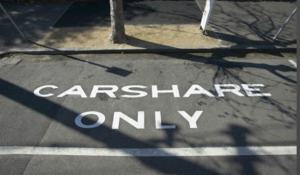This is short report was submitted by the participants of the city of Amsterdam  in the 20 February 2014 workshop in the Utrecht for the project Going Dutch: Carshare Strategies for Cities being carried out by the KpVV (think tank of the Dutch ministry of transport) in cooperation with EcoPlan. The latest draft report on that meeting and the recommendations of those present from a cross-section of Dutch cities and agencies is available in our project library at http://goo.gl/clWKnD. Your comment and suggestions are most welcome.
in the 20 February 2014 workshop in the Utrecht for the project Going Dutch: Carshare Strategies for Cities being carried out by the KpVV (think tank of the Dutch ministry of transport) in cooperation with EcoPlan. The latest draft report on that meeting and the recommendations of those present from a cross-section of Dutch cities and agencies is available in our project library at http://goo.gl/clWKnD. Your comment and suggestions are most welcome.
Summary of Amsterdam presentation
In the Netherlands, carsharing is the most popular in Amsterdam. There were 1.476 car registered for carsharing. Of all the cars in Amsterdam 0,65% is available for carsharing. This seems a very small amount, but if you compare it with the average number of cars available for carsharing in the entire country (0,07%), it’s clear carsharing is popular in Amsterdam.
Amsterdam wants to stimulate carsharing because it tributes to conscious car use, which also implicates an efficient use of the available space. The local authority stimulates carsharing by creating special parking lots only for carsharing. There are about 630 parking lots reserved for this classical way of carsharing, for all classical carshare initiatives. Another carsharing initiative in Amsterdam is Car2Go, with fully electrical driven cars. Car2Go is one way carsharing, with a parking permit for the entire city. There are 300 Car2Go cars in Amsterdam.
The people who use carsharing in Amsterdam are mostly highly educated and most of them lives in the part of the city within the ring road A10. Most cars available for carsharing are also situated in this part of the city. Most car sharers in Amsterdam have indicated they choose carsharing because they think the costs of an own car are too high. This is linked to the fact that they also indicated that when their need of a car changes, carsharing becomes an option.
Because of the fact that classical carsharing and peer-to-peer carsharing is growing in Amsterdam, the local authority is investigating how to cope with this trend and how to develop policy on carsharing.
Closing reflections and recommendations
I would like to make a compliment for the initiative organizing the meeting. I think it is very helpful for all local authorities to learn how other cities are handling carsharing.
For the next meeting I think it will be better to focus more on topics the authorities want to discuss, instead of spending time on the general theory of carsharing. I would like to suggest for the next meeting the participants bring in the subjects, so we can all dig deeper on the subject. After we’ve done that, the presence of carshare initiatives in a third meeting would be profitable.
Summary notes on parking policy for carsharing in Amsterdam:
- Allowance for operators to use dedicated parking places
- Fast procedures for new parking places
- Spread of parking places
- Agreements about costs
- Minimal use of cars (>15 rentals/months)
- City informs about road maintenance
- Operator informs when a parking place is no longer needed
- City and operator can end cooperation if wanted
- Iris Kerremans, DIVV, Amsteerdam
# # #
About the editor:
 Print this article
Print this article



No comments:
Post a Comment
Thank you for your comment. You may wish to check back to the original entry from time to time to see if there are reactions to this. If you have questions, send an email to: editor@worldstreets.org